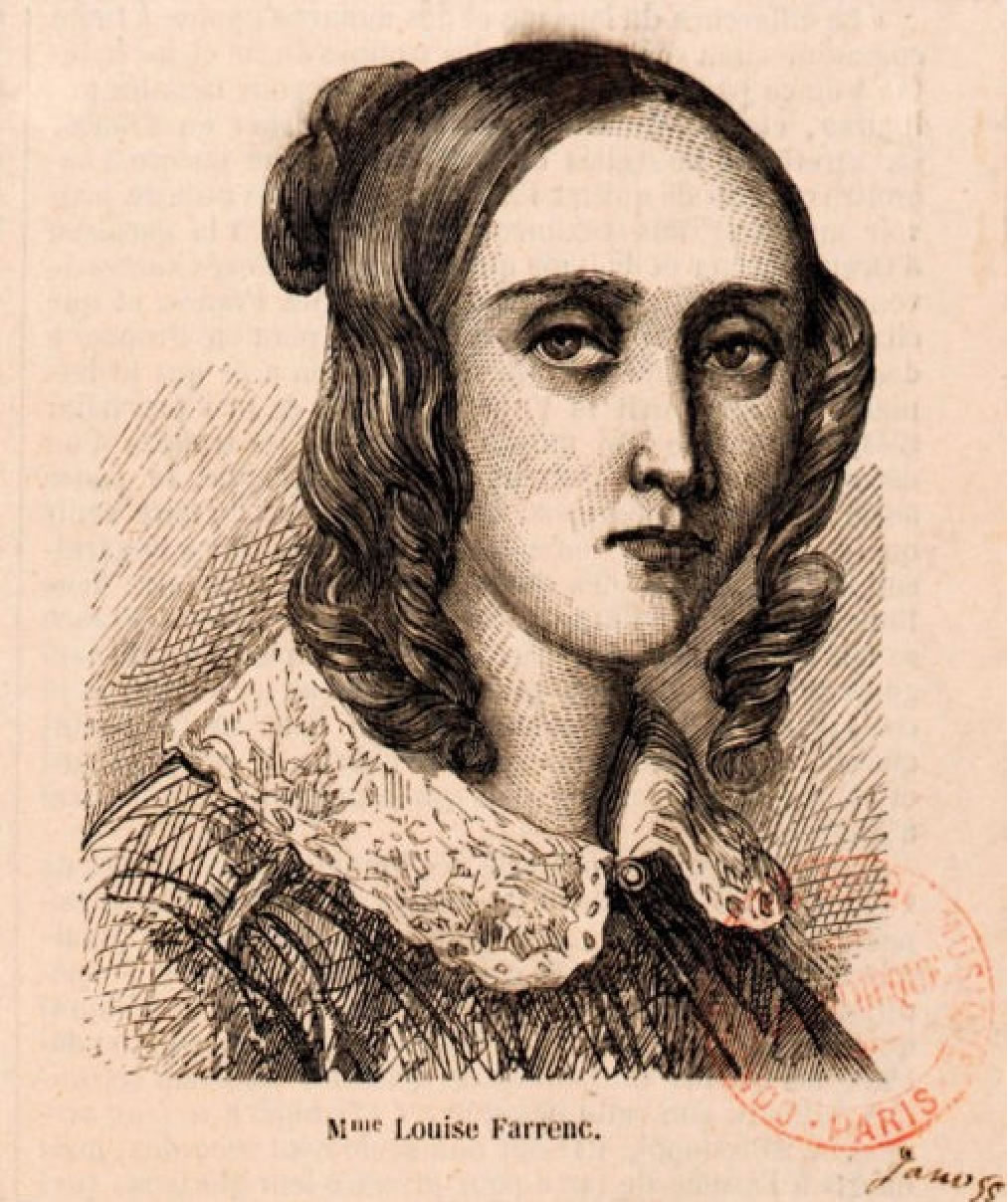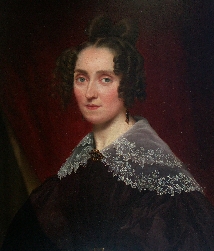
Jeanne-Louise Farrenc
1804-1875
As a very young child, Louise Farrenc lived in the Louvre. I was fascinated by the thougth that artists actually lived there. It was originally a palace, but when Louis XIV moved the court to Versailles, it feel into disrepair. Louis established many of the conventions that made Paris a center of art and culture, one of which was The Academy. This tradition continued for generations. Successful artists were part of The Academy, and Louise was born into a lineage of just such successful sculptors and painters.
Her maiden name was Dumont. Her father was a sculptor, as was her grandfather. Her great-grandfather was a painter, and on her mother's side as well, the lineage was the arts. She showed an early interest in music and a gift. She began to study as a very young child.
Interestingly, Paris did not fully embrace the musical traditions of Vienna and Germany. Although Mozart had certainly taken Paris by storm, Beethoven never visitied, and wasn't that popular. The Parisians of the early 19th century were fans of opera. They were not that interested in musique sérieuse, as they called orchestra music. Louise was. She wrote three symphonies in her adult life, and was the first women to do so. Around her, women primarily wrote songs and short "salon" pieces. Even Clara Schumann ventured only so far as the concerto.
I've been listening to Louise Farrenc's First and Third symphonies a great deal of late. They are passionate and dramatic and remind me somewhat of Beethoven, who she deeply admired. They are wonderful. I'm amazed, as I listen to them, that they're not better known. She also wrote extensively for chamber orchestra, up to nine instruments, and she wrote a good deal of piano music. She was well-respected in her lifetime, although as a performer, she could never compete with the likes of Franz Liszt who was the rock star of their day.
She married Aristide Farrenc, a flutest who became a business man and ran a successful music publishing company. He acted as her promoter. He had been born in Marsailles and was somewhat provincial, publishing Chopin for a very short time, for example, but dropping him because Chopin was undisciplined and difficult. Aristide didn't think he would amount to much.
They had a daughter, Victorine Farrenc, who I call Tori. She became a billiant, award-winning pianist, but died in her early thirties from tuberculosis. After her death, Louise never composed again, although she did continue to teach and she also completed the musical history her husband had begun—some 23 volumes: Le Trèsor des Pianistes, an anthology of three centuries of keyboard music.
